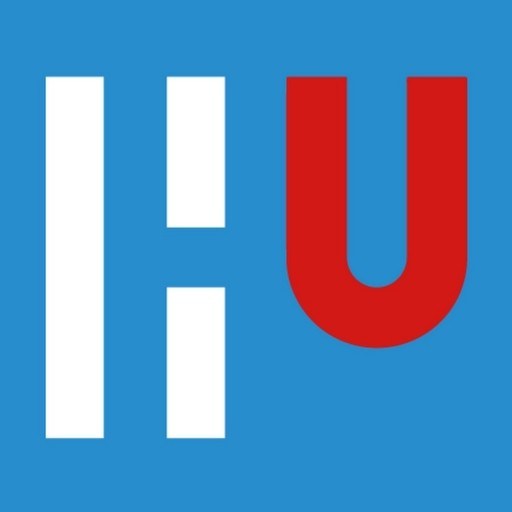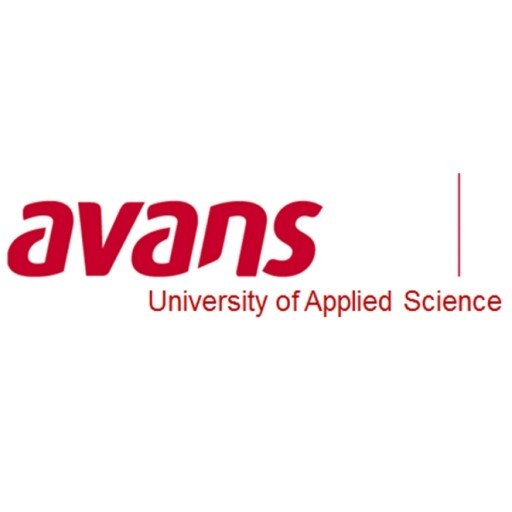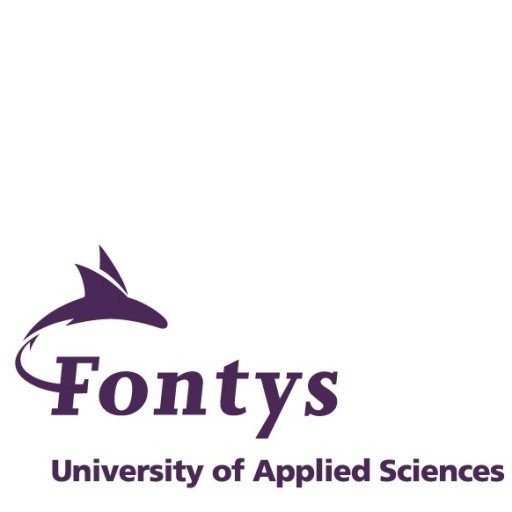Photos of university / #universityofgroningen
Industrial Engineering and Management at the University of Groningen is a comprehensive Bachelor's degree program designed to equip students with the technical expertise and managerial skills necessary to optimize complex industrial processes and supply chains. The program combines principles from engineering, business, and management to prepare graduates for a wide range of careers in manufacturing, logistics, consultancy, and technology-driven industries. Throughout the three-year curriculum, students explore core topics such as operations research, production planning, quality management, supply chain logistics, and technology innovation. They also develop essential skills in project management, data analysis, and problem-solving, enabling them to improve efficiency, reduce costs, and foster sustainable practices within organizations. The program emphasizes practical experience through project-based learning, internships, and collaborations with industry partners, ensuring graduates are well-prepared for real-world challenges. Additionally, the university encourages international perspectives, open-mindedness, and entrepreneurial thinking, encouraging students to become innovative leaders in their fields. The interdisciplinary nature of the program allows students to gain a broad understanding of how engineering solutions can be integrated with business strategies to create value and competitive advantage. Located in Groningen, a vibrant city with a strong tech and innovation sector, students benefit from a stimulating academic environment and a diverse, inclusive campus community. Graduates of Industrial Engineering and Management are equipped with the theoretical knowledge and practical skills to pursue careers in designing, improving, and managing complex systems across various sectors, contributing to sustainable development and technological advancement worldwide.
The Bachelor’s program in Industrial Engineering and Management at the University of Groningen offers a comprehensive and multidisciplinary education designed to prepare students for addressing complex technological and organizational challenges in various industries. The programme combines rigorous engineering science with management principles, focusing on optimizing processes, improving systems, and innovating within manufacturing, logistics, and service sectors. Throughout the degree, students develop a strong foundation in core engineering disciplines such as mathematics, physics, and computer science, complemented by courses in operational management, supply chain management, production planning, quality control, and project management. The curriculum emphasizes practical application of theoretical knowledge through hands-on projects, laboratory work, and collaborations with industry partners. Students learn to analyze and improve operational processes, design effective systems, and implement technological solutions that enhance productivity and sustainability. An integrated internship component provides real-world experience, fostering direct engagement with the professional environment and allowing students to apply their skills in practical settings. Additionally, the programme encourages entrepreneurial thinking and innovation, preparing graduates to take on leadership roles in dynamic, technology-driven organizations. As part of the University of Groningen’s commitment to excellence, students can benefit from a wide range of support services, modern facilities, and international exchange opportunities, enriching their educational journey. Graduates of this programme are equipped with analytical, technical, and managerial skills sought after in various sectors including manufacturing, logistics, healthcare, and consulting. The programme aims to produce professionals who can contribute to technological advancements and organizational efficiency, driving sustainable development and economic growth in a global context.
Admission requirements
Mathematics and Physics. This is merely an indication of required background knowledge. The admissions board determines whether the specific contents of this/these course(s) meet the admission requirements of the bachelor programme for which you applied.
Other requirements
- aanvullend vak Mathematics and Physics. This is merely an indication of required background knowledge. The admissions board determines whether the specific contents of this/these course(s) meet the admission requirements of the bachelor programme for which you applied.
- minimum kennis (ISPAC: overige vereisten) What if you do not meet the admissions requirements? We offer a foundation year for students who do not meet the admissions requirements, in association with the Holland International Study Centre. The Foundation year will help you develop your academic skills and English language to the required standard, after which you can progress to the first year of your Bachelor's programme. More information can be found at: http://www.hollandisc.com/international-foundation-year/science-and-engineering
- taaltoets cijfer Proof of English proficiency is required: TOEFL IBT score of 92, a TOEFL CBT score of 237, a TOEFL PBT score of 580, an IELTS score of 6.5, a CAE or CPE certificate. MAKE SURE TO VISIT http://www.rug.nl/fwn/fmns-programme/admissions/bsc/language for all the necessary information about required language tests.
- vooropleiding (ISPAC: vereiste vooropleiding) Secondary education equivalent to Dutch pre-university education is required. This is merely an indication of the required general level of applicants' previous education. FOR MORE INFORMATION please visit the 'BSc Application Procedure' pages at: http://www.rug.nl/education/international-students/application-procedure/entry-requirements/bachelor-degree-programme
Financing for the Bachelor's programme in Industrial Engineering and Management at the University of Groningen is primarily composed of government grants, student loans, and personal funding. The Netherlands offers a well-structured financial support system for students enrolled in international degree programmes. For EU/EEA students, the tuition fees are typically lower due to the accessibility of the Dutch government grants and loans system, which is designed to promote higher education accessibility. These students can apply for student loans through the Dutch government, which provides financial support with favorable repayment terms, and may also be eligible for grants or allowances depending on their financial situation.
Non-EU/EEA students usually face higher tuition fees, which are directly payable to the university for each academic year. These students often rely on personal funding, scholarships, or external financial aid sources, as they are generally not eligible for Dutch government student loans. The university offers various scholarships, including the Holland Scholarship and other institutional bursaries, aimed at attracting talented international students. Many students supplement their funding through part-time jobs, internships, or sponsorships.
The tuition fees for the programme vary depending on the student’s nationality. For EU/EEA students, the fees are approximately EUR 2,209 per year, whereas non-EU/EEA students pay around EUR 15,000-20,000 per year. These fees are payable at the start of each academic year and cover access to lectures, coursework, and university facilities. Additionally, students should budget for living expenses, including accommodation, food, transportation, insurance, and study materials, which can amount to approximately EUR 10,000-12,000 annually, depending on lifestyle and housing choices.
Students are advised to explore government grants in their home countries, as many nations offer student loans and grants for international study abroad. The University of Groningen also provides guidance on scholarships and external funding options. International students are encouraged to seek scholarships from their governments, international organisations, and private foundations.
In conclusion, the financial landscape of studying Industrial Engineering and Management at the University of Groningen encompasses a combination of government support for eligible students, institutional scholarships, personal savings, and external funding sources. Planning ahead and exploring all available options can ensure a sustainable financial setup for study and living costs throughout the programme.
Industrial Engineering and Management at the University of Groningen is a multidisciplinary program designed to equip students with the skills and knowledge necessary to optimize complex systems and processes within industries. This programme combines principles from engineering, management, and social sciences to prepare students for a wide range of careers in manufacturing, logistics, consulting, and technology sectors. The curriculum covers core topics such as operations research, production management, supply chain logistics, quality control, industrial automation, and data analysis. Students learn to identify inefficiencies, develop innovative solutions, and implement strategies that improve productivity and sustainability within organizations. Emphasis is placed on practical application through projects, internships, and collaborations with industry partners, providing students with real-world experience. The program also fosters skills in leadership, communication, and teamwork, preparing graduates to take on managerial positions or pursue further academic research. The teaching methodology includes lectures, group assignments, case studies, and site visits, encouraging active learning and critical thinking. Graduates of this programme are well-equipped to contribute to the development of smarter, more efficient industrial systems, emphasizing sustainability and technological innovation. The university’s strong focus on research and industry collaboration ensures students stay updated on the latest trends and technologies in the field. The programme is accredited by relevant educational authorities and recognized internationally for its quality and relevance to industry needs. Graduates commonly find employment in sectors such as manufacturing, logistics, supply chain management, consultancy, and government agencies. They may also continue their education through master's or doctoral studies in related fields. The program duration is typically four years for a bachelor's degree, with opportunities for specialization in areas such as innovation management, production engineering, or operations research. The University of Groningen provides excellent facilities, a supportive learning environment, and an extensive network of alumni and industry contacts to assist students in their career development. Overall, the Bachelor’s in Industrial Engineering and Management aims to develop versatile professionals capable of designing, improving, and managing complex industrial systems for a sustainable future.






